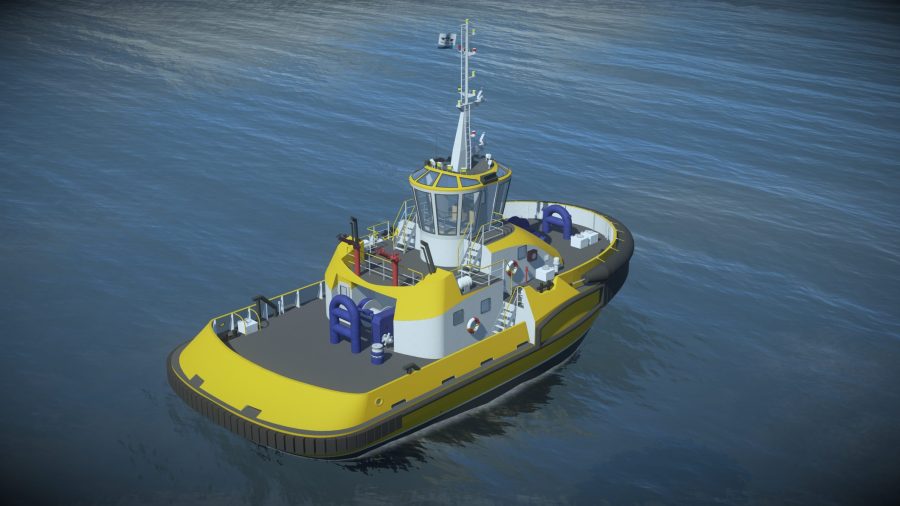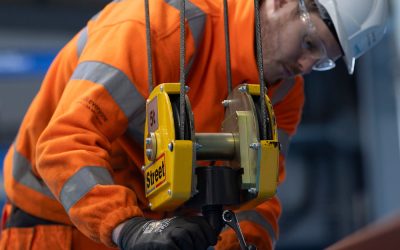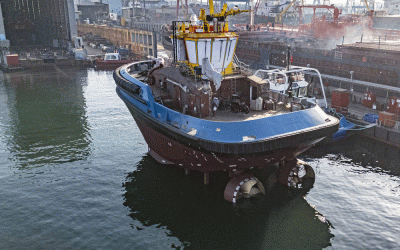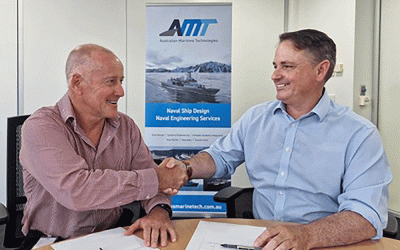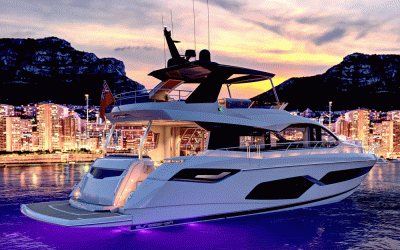Shipbuilder Harland & Wolff has teamed up with naval architect Macduff Ship Design, propulsion specialist Kongsberg Maritime and battery manufacturer Echandia to develop a zero-emissions harbour and coastal tug. Two tugs are specified in the initial order, each with a proposed length of 25.5m, a beam of 12m and a draught of 4.85m – although, Harland & Wolff told Ship & Boat International during the Seawork expo in June, these particulars may change as the vessel takes form.
Similarly, Macduff Ship Design MD Ian Ellis explains that “a lot of details” still need to be finalised, though it’s understood the tug will feature an initial bollard pull of 50tonnes, “with scope to increase a little in the future”. Speed is predicted to be around 11knots. “Final battery capacity is to be agreed, and it is likely that the design will have some flexibility on that front to suit different operators,” Ellis adds.
The tugs are expected to incorporate Azimuth stern drives and modular battery banks, and will be accompanied by two barges: one measuring 90m x 30m, the other 50m x 15m.
Initially, the tugs and barges will move shipbuilding materials between Harland & Wolff’s Belfast, Methil, Arnish and Appledore facilities, though barges going spare could be used to transport goods on behalf of customers looking to reduce their road footprints. Harland & Wolff says: “Having the ability to efficiently move large loads on the Marine Coastal Highway would create greater opportunities for shipbuilding [and] fabrication of structures for offshore wind developments across the entire country, helping spread work beyond the industry’s existing focus on the central belt of Scotland, and supporting the UK’s National Shipbuilding Strategy.”
Beyond tugboats, Harland & Wolff sees potential to scale these zero-emissions technologies into the future production of crew transfer vessels (CTVs) and service operation vessels (SOVs).
